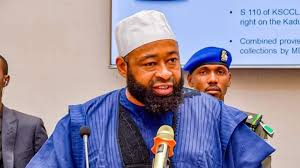
Media Rights Agenda Highlights Rampant Attacks on Journalists
Media Rights Agenda (MRA) today released a report titled “When Protectors Become Predators: The State Against Freedom of Expression in Nigeria”, documenting a disturbing pattern of attacks, intimidation, and harassment targeted at journalists and other media workers by security, law enforcement, and intelligence agencies, which are the very institutions that are supposed to protect them. The 129-page report, issued in commemoration of this year’s International Day to End Impunity (IDEI) for Crimes Against Journalists, highlights how those entrusted with maintaining law and order as well as protecting citizens, including journalists, have instead become instruments of repression, targeting journalists and other media workers for doing their legitimate work of informing the public and holding power to account. It revealed that government officials were responsible for nearly 74 percent of all attacks on journalists and freedom of expression recorded by MRA in Nigeria between January 1 and October 31, 2025, with the Nigeria Police Force emerging as the worst offender, accounting for 45 percent of all incidents of violation of media rights. Other perpetrators of attacks on journalists include operatives of the Department of State Services (DSS), various branches of the military and paramilitary agencies, as well as elected and appointed political office holders at federal and state levels, among others. According to MRA, at least 69 incidents were documented during the period under review, including arbitrary arrests and detention, physical attacks, threats to life, invasions of media offices, abductions, and other forms of harassment or intimidation of journalists performing their legitimate professional duties. MRA’s Deputy Executive Director, Mr. Ayode Longe, said: “The report shows that journalists in Nigeria are increasingly under siege, not just from criminals and insurgents, but principally from the very state institutions charged with protecting them,” adding that “This trend is a direct contradiction of the Government’s constitutional and international legal duty to guarantee the safety of media practitioners and uphold the public’s right to be informed. It represents a fundamental breakdown of law enforcement accountability and a direct assault on democracy and the rule of law.” The report noted that the climate of pervasive impunity for attacks against journalists has not only eroded public trust in government institutions but has also continued to fuel further violations as perpetrators are rarely identified, investigated or prosecuted, creating an environment of fear and self-censorship that is weakening democratic governance. MRA insisted that ensuring the safety of journalists is a legal and moral obligation of the Government, enshrined in the Nigerian Constitution, Article 9 of the African Charter on Human and Peoples’ Rights, and Article 19 of the International Covenant on Civil and Political Rights, as well as other regional and international human rights instruments. It therefore called on the Federal Government to establish and enforce accountability mechanisms for government officials involved in attacks on journalists; as well as reform and re-train security, law enforcement, and intelligence agencies to enable them to respect and uphold human rights and media freedom. The organization also proposed the establishment of a national multi-stakeholder protection mechanism for journalists and the adoption of urgent measures to put an end to the misuse of the Cybercrime (Prohibition, Prevention, etc.) Act, 2015, as amended, and other repressive laws against the media. MRA called on the National Assembly to enact legislation that specifically criminalizes attacks on journalists and urged the National Judicial Council (NJC) to develop and adopt a system for monitoring the misuse of judicial processes to harass journalists while also taking measures to prevent such further abuses.




